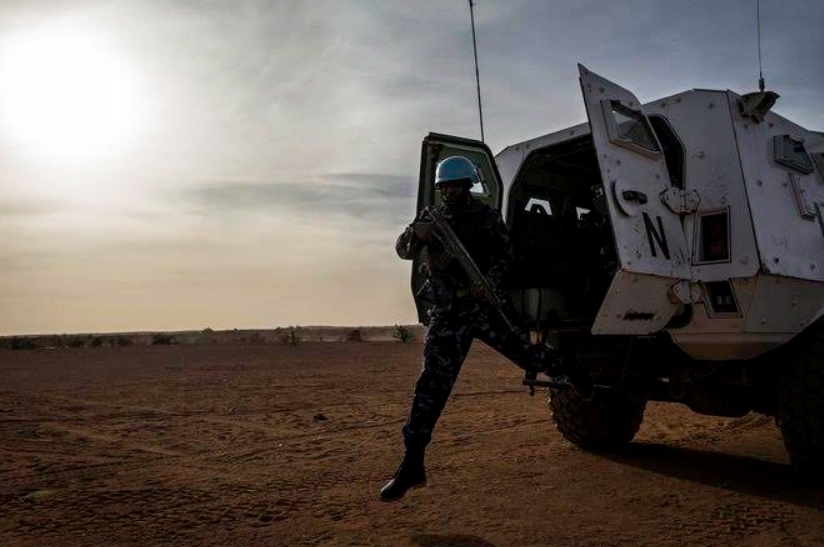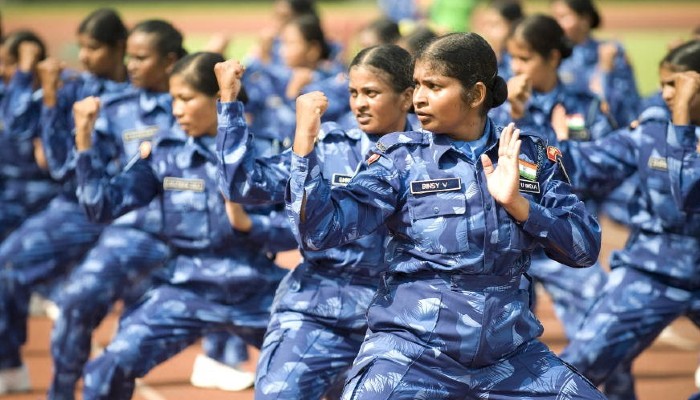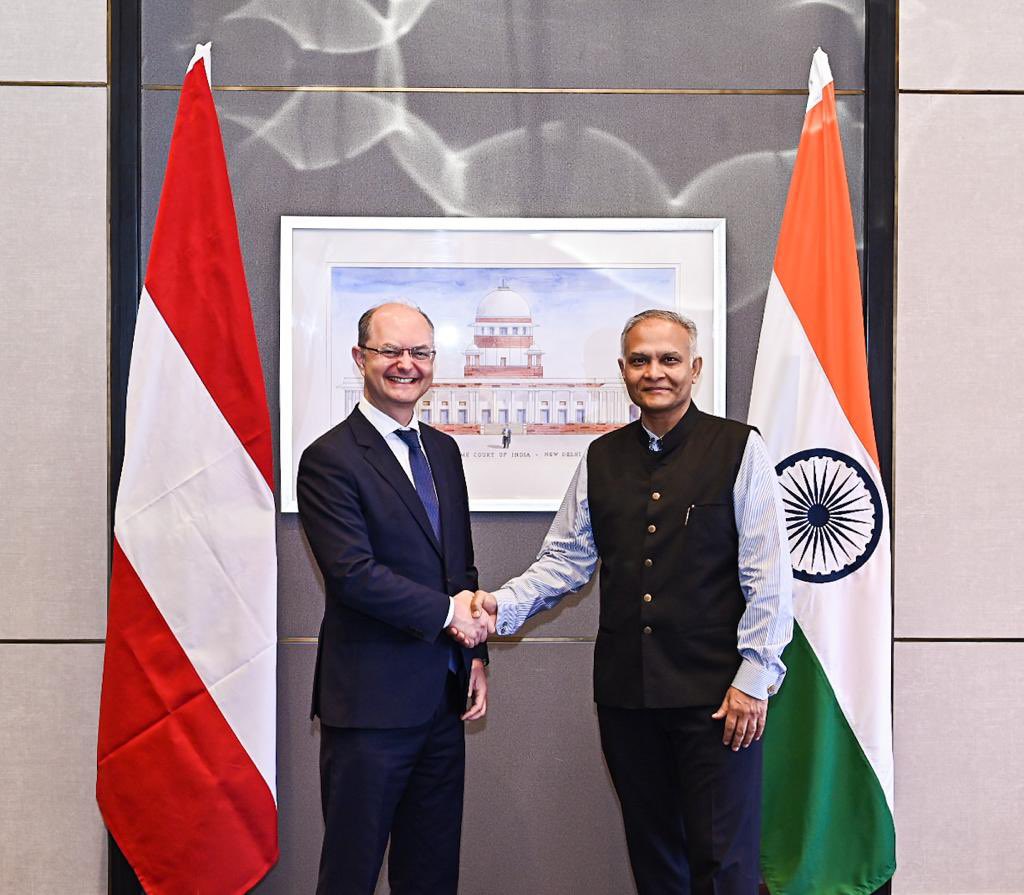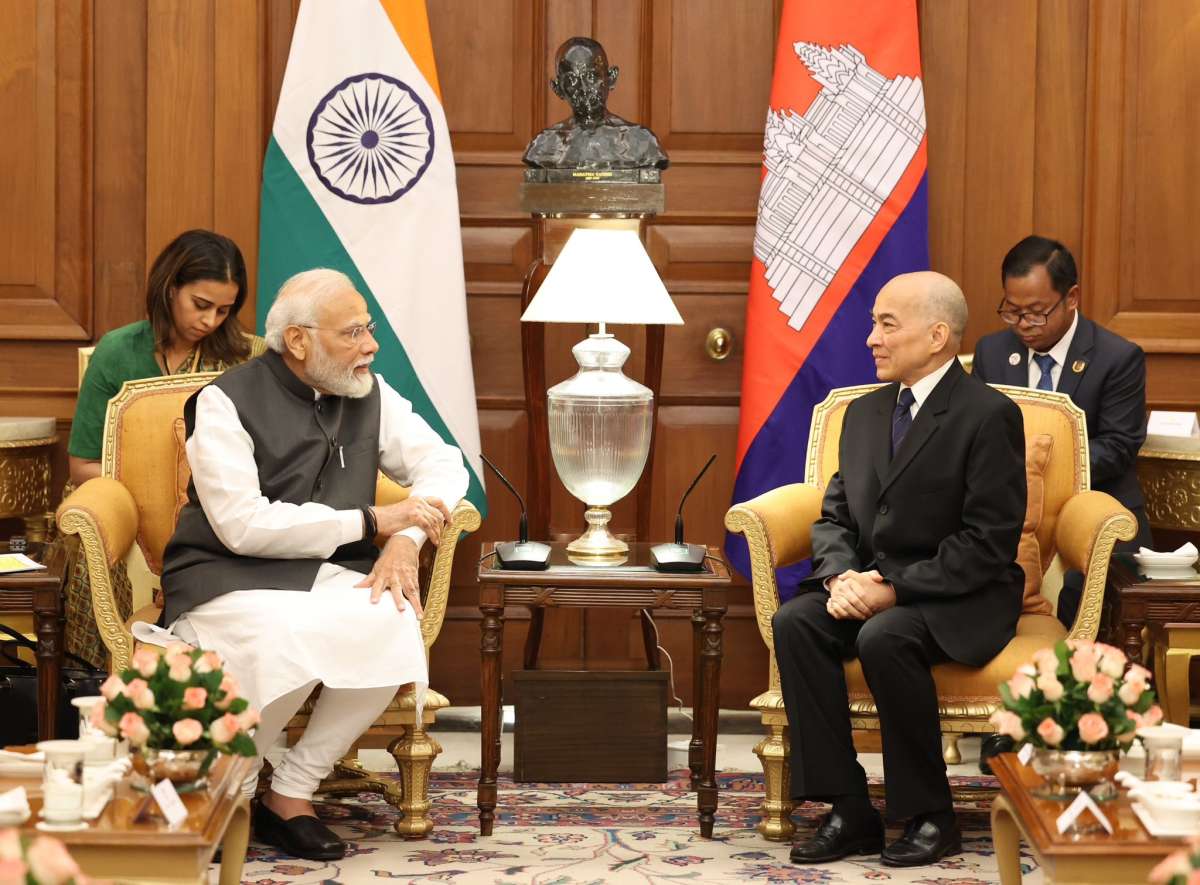India has been a consistent part of the 75-year-journey of the UN Peacekeeping Force…reports Asian Lite News
Giving peace a chance – 24×7 and 365 days a year – is an army of United Nations (UN) Peacekeepers across the world. May 29 happens to be a celebration of the important role these Bravehearts play. The first UN peacekeeping mission, ‘UN Truce Supervision Organisation (UNTSO)’ began operations in Palestine on this day in 1948. Known as the International Day of UN Peacekeepers, it is a remarkable day for India too which has emerged as a prominent participant in UN Peacekeeping.
This year, India had a space under the spotlight as we received the Dag Hammarskjöld Medal, the highest honour awarded to UN Peacekeepers. In its own unmatchable way, India has been a consistent part of the 75-year-journey of the UN Peacekeeping Force, a force that has helped to end conflict, protect civilians, advance political solutions, and secure sustainable peace. The UN Peacekeepers, also called Blue Helmets, are labelled so because, in 1947, General Assembly resolution 167 (II) approved light blue as the color for the United Nations flag. This distinctive colour came to represent the UN. While red symbolizes war, blue represents peace.
Two Indian peacekeepers, Head Constables Shishupal Singh and Sanwala Ram Vishnoi, sacrificed their lives as the 176th and 177th Indians, respectively, in their noble pursuit of peace on distant shores. They lost their lives while serving under the UN flag last year in the Democratic Republic of Congo. Singh and Vishnoi were posthumously awarded the Dag Hammarskjold Medal for their unwavering dedication and ultimate sacrifice at an event held at the UN Headquarters in New York on Monday (May 29, 2023). Shaber Taher Ali, another Indian who was employed in a civilian capacity with the UN Assistance Mission for Iraq (UNAMI) was also honoured.
India’s contribution to UN Peacekeeping operations is a testament to its rich legacy and commitment. As one of the largest contributors of troops, India has played a significant role by providing approximately 275,000 troops to various peacekeeping missions to date. Currently, around 5,900 Indian troops are actively deployed across 12 UN Missions.
The Indian Army personnel have consistently demonstrated exceptional professionalism, courage, and valour in the face of challenging conditions and difficult terrains. Their unwavering dedication to upholding UN mandates has been accompanied by a humane approach, fostering a sense of empathy in their peacekeeping efforts. Tragically, 159 Indian Army soldiers have made the ultimate sacrifice in their pursuit of global peace.

Strong commitment to gender parity
Recognizing the potential of women in effectively addressing the complex challenges of peacekeeping, India has been proactive in including women in various roles, including military, police, and civilian components. India displayed a strong commitment to gender parity by deploying Female Engagement Teams (FETs) and Female Formed Police Units (FFPUs) to countries like Lebanon and the Democratic Republic of Congo. These deployments enable Indian women peacekeepers to engage with local communities, foster dialogue, and provide vital support to marginalized populations, particularly women and children.
Indian women peacekeepers encounter a range of challenges during their missions, often stemming from deeply entrenched gender biases and stereotypes. India, one of the leading nations in terms of troop contribution to UN peacekeeping, has made a notable deployment by sending a platoon of women peacekeepers to Abyei, South Sudan, in January 2023. This marks India’s largest unit of female Blue Helmets in a UN mission since 2007. This deployment signifies India’s commitment to peacekeeping while reflecting the country’s determination to substantially enhance the participation of Indian women in peacekeeping contingents. India previously deployed the first-ever all-women’s contingent in Liberia in 2007.
Overcoming societal norms and perceptions regarding women’s roles in conflict and security requires resilience and determination. Furthermore, logistical obstacles such as limited access to appropriate facilities, resources, and gender-specific training can hinder their effectiveness in the field. Additionally, women peacekeepers are vulnerable to security risks and gender-based violence, necessitating comprehensive measures to ensure their safety and well-being.
Indian women serving in UN peacekeeping forces serve as inspiring role models, challenging gender stereotypes and inspiring future generations. Their presence has a profound impact on local communities, empowering women and girls as agents of change while promoting gender equality. By engaging with local populations, Indian women peacekeepers build trust, facilitate dialogue, and address sensitive issues such as sexual and gender-based violence. Their contributions instil a sense of security and hope, playing a pivotal role in conflict resolution and sustainable peacebuilding efforts.
In keeping with its commitment, the Indian Army has established a Centre for UN Peacekeeping (CUNPK) in New Delhi to impart niche training in peacekeeping operations. The centre trains more than 12,000 troops every year. CUNPK undertakes a multitude of activities from contingent training to national and international courses for potential peacekeepers and trainers. It also hosts foreign delegations as part of sharing best practices.
The Centre regularly dispatches Mobile Training Teams to friendly foreign countries as part of capacity building in the field of UN peacekeeping training. The institute has evolved in the two decades as a Centre of Excellence and repository of experience and best practices. John Lennon famously sang ‘Give peace a chance’. These blue soldiers do that 24×7. In the pursuit of peace! (India News Network)














